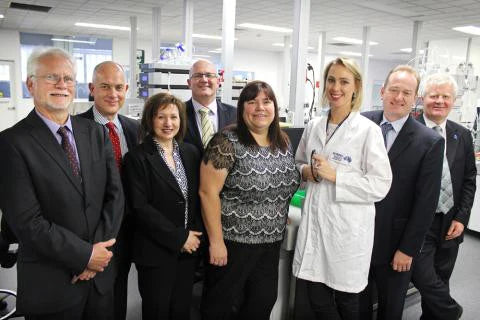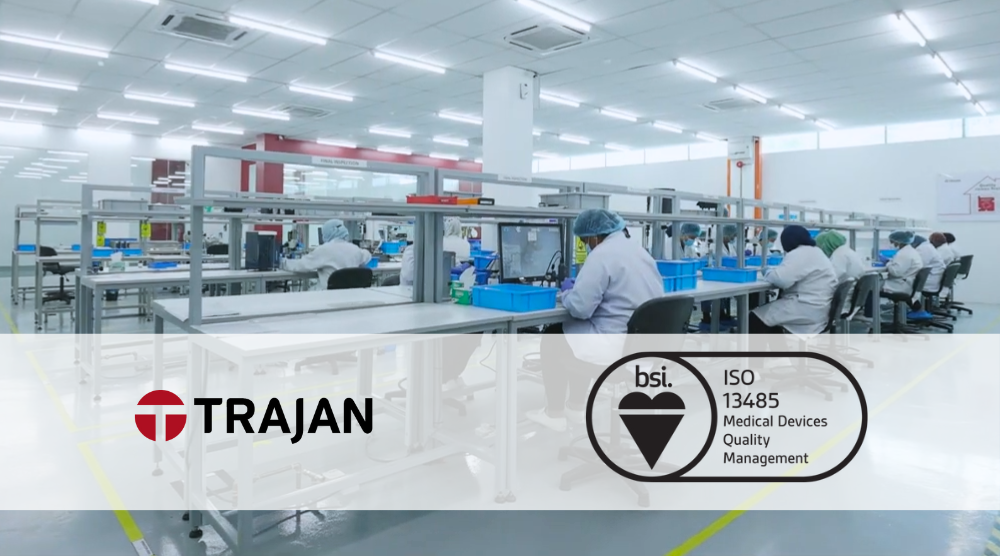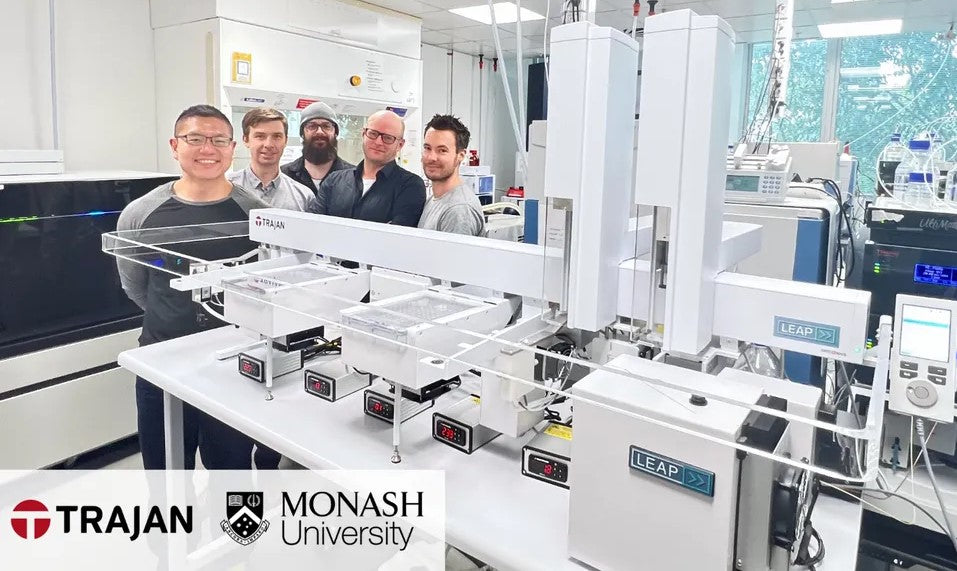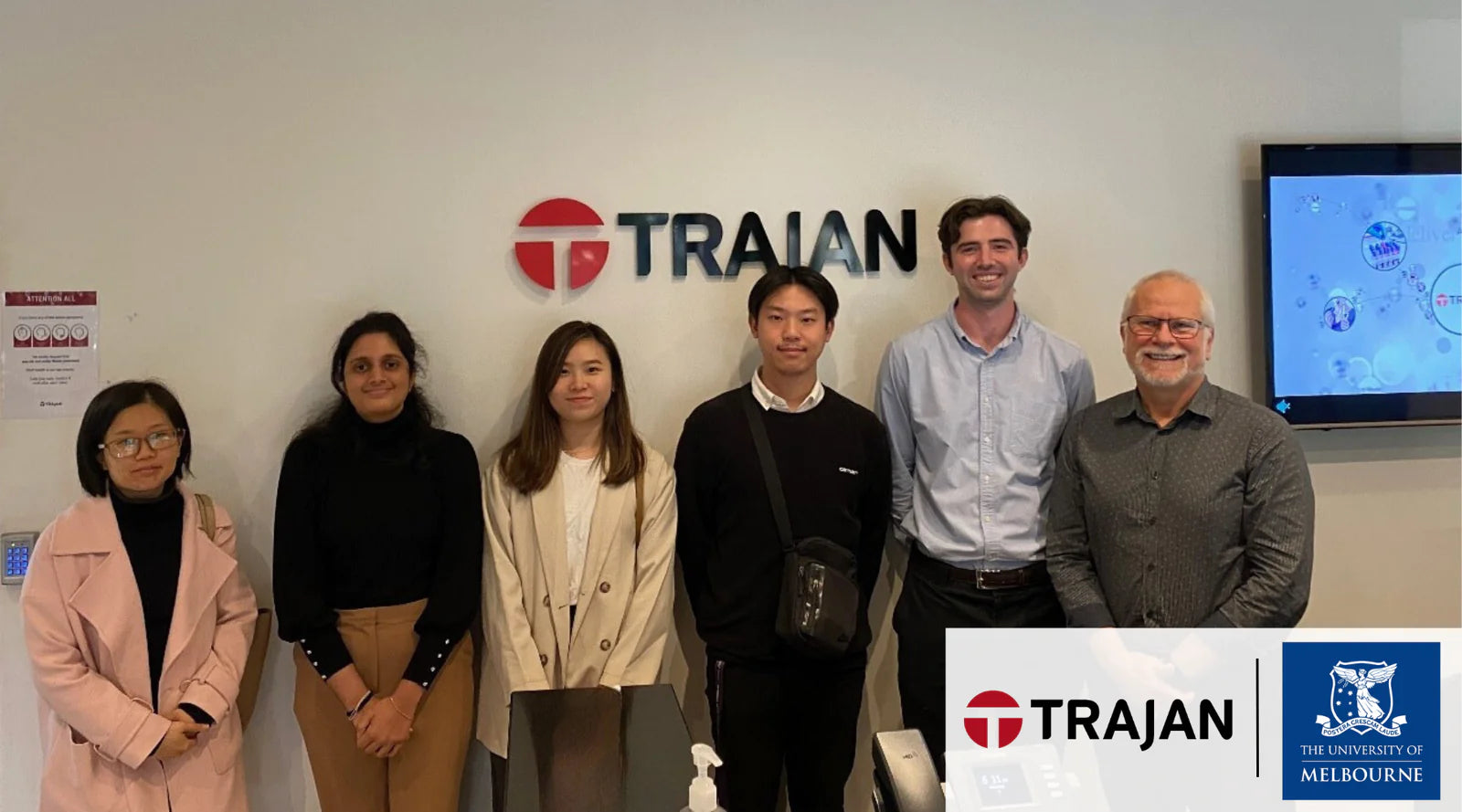University of Tasmania researchers are driving at revolutionary new technologies which could see complex medical and industrial testing brought out of the lab and onto a smart phone.
According to those behind the work, the prospect of ‘miniaturising’ analytical separation technologies – now conducted in large, specialised laboratories – could produce huge efficiencies in time and logistics.
The work will be a focus of a new collaboration between the University, industry partner Trajan Scientific and Medical, and the Federal Government.
This has created the $5.2 million Australian Research Council (ARC) Training Centre for Portable Analytical Separation Technologies (ASTech) at the University, which was officially opened today.
Analytical separation science is a fundamental technology that allows samples to be broken down into their component parts and measured. It has a range of applications in areas including forensics, medical and clinical analysis, environmental testing, and food safety.
University Vice-Chancellor Professor Peter Rathjen said the Centre would be at the cutting edge of research, pushing technology towards ever greater portability and training the next generation of scientists in the field.
“We are offering three postdoctoral research fellowship and scholarships for 10 PhD students through this Centre,” Professor Rathjen said. “Part of their training will take place embedded within industry through Trajan.
“This Centre will have a significant impact on the development of high-end manufacturing in Australia, both through its research and by creating a new cohort of industry-ready researchers in a field poised for rapid advancement.”
University Deputy Vice-chancellor (Research) Professor Paddy Nixon added: “The University has an outstanding record working with industry and Government, with the highest success rate in the country for the ARC’s Industrial Transformation Training Centre and Industrial Transformation Research Hub schemes.
“Through these sorts of collaborations, we deliver real benefits to our students, the broader community and the economy.”
Professor Emily Hilder is Head of the Discipline of Chemistry at the University and Director of the new Centre.
“Right now, analytical separations are typically done in large labs due to the size and complexity of the technology,” Professor Hilder said.
“The exciting work in this field is in miniaturisation. How can we shrink things so we can use smaller technology and smaller samples?
“What if you could carry out a full suite of tests on a pin-prick droplet of blood rather than a full vial and what if those tests could be done on equipment at the GP’s office rather than sent off to a central lab? What if you could carry out tests on your smart phone?”
Professor Hilder said the Centre would build on the University’s national standing in the field, underpinned by the work of the Australian Centre for Research on Separation Science (ACROSS), which was established in 2001.
Trajan’s Chief Executive Officer, Stephen Tomisich, said that by establishing ASTech with the University, it demonstrates a collaborative framework for industry and academia in Australia to deliver tangible economic and social benefits.
“In the lead up to today’s launch, Trajan and the University have set clear approaches to achieve mutual goals, from target technology development to commercialization, IP protection and providing student training in an innovative commercial environment,” Mr Tomisich said.
“Trajan is committed to making an impact on transforming Australian-based research into commercial outcomes for the global market.”
Information released by
University of Tasmania, Communications and Media Office
Phone: 61 3 6324 3218 or 0438 510 616
Email: Media.Office@utas.edu.au

Photo (L-R): Andrew Gooley (Trajan), Stephen Tomisich (Trajan), Angela Tomisich (Trajan), Robert Lyon (Trajan), Emily Hilder (UTAS), Esme Candish (UTAS), Glenn Clivaz (Trajan), Harald Ritchie (Trajan) at Sandy Bay Campus, University of Tasmania.



